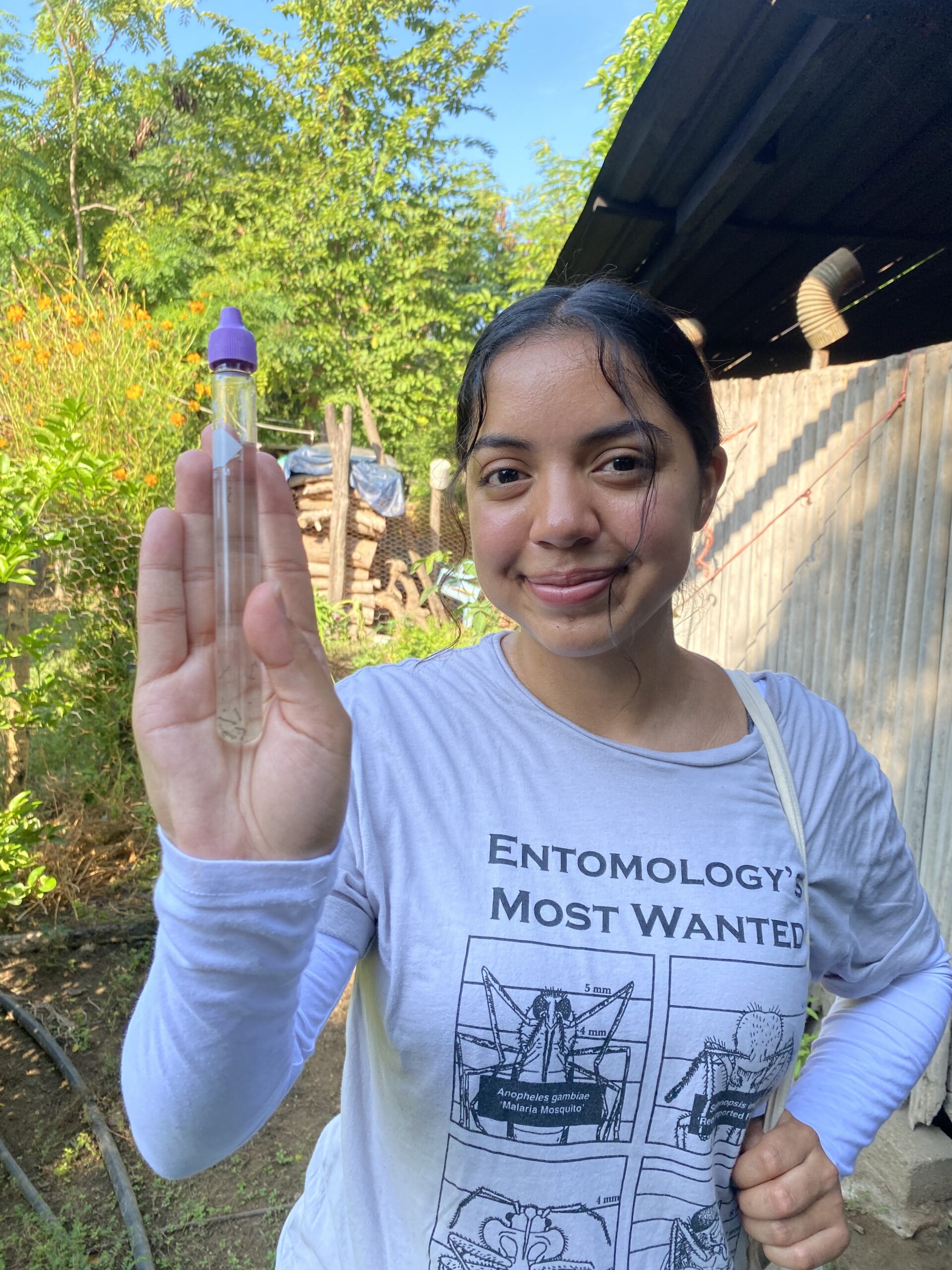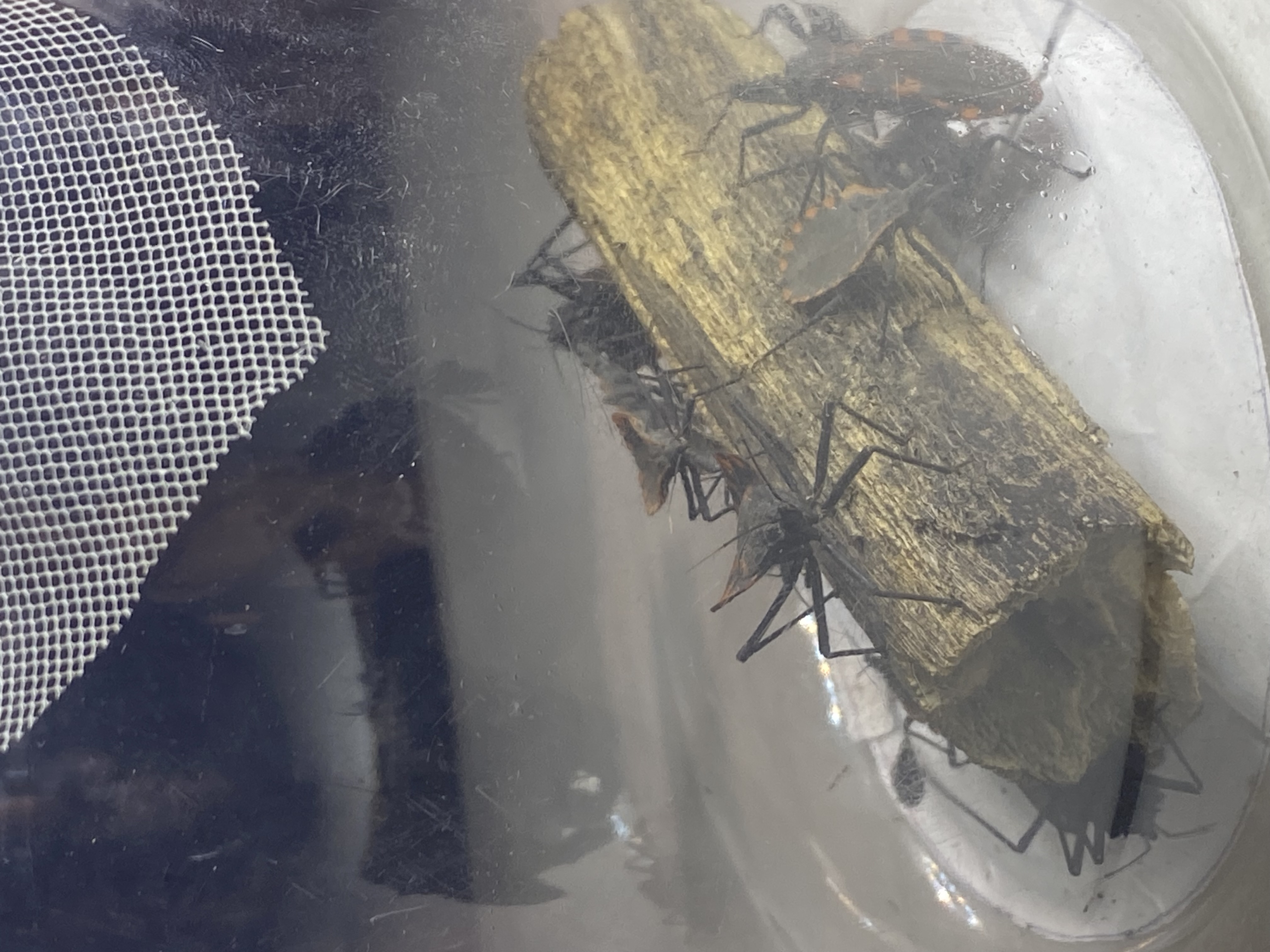
Zancudos, Chinches, y Aranas, Oh My
Nov. 24, 2023
Greetings from the coast of Oaxaca!
We arrived in Puerto Escondido a couple of weeks ago and so far have been exploring different public health issues affecting the population here on the coast. The most fascinating part has been learning about different tropical diseases like dengue and chagas disease and shadowing entomologists as they do their field work. We’ve had the opportunity to visit 2 communities, searching for triatomine bugs (chinches) or “kissing bugs” which transmit chagas disease, inspecting homes for potential mosquito (zancudo) breeding sites and collective samples of larvae and pupae to send for laboratory testing to Mexico City, and educating the community on the best ways to prevent the transmission of these diseases.
In my clinical volunteer work and internships in the U.S., I have never seen a case of a neglected tropical disease (NTD) and I have since learned that they are much more prevalent in areas like the coast of Oaxaca, where the climate is ideal for many vectors like mosquitos and triatomine bugs. Although my main career choice is practicing medicine, I have always been interested in public health as well, especially when both fields tend to go hand in hand. Here on the coast, I have learned about how the state’s health secretariat has dedicated resources to entomological work, targeting areas that are highly impacted by disease, and working to educate the community on how to prevent being infected with an NTD as well as how to recognize the signs of infection with NTD to seek the appropriate medical attention.
Although it might not seem like a prevalent issue in the U.S., it’s important to keep in mind that due to globalization and the migration of populations from areas where NTDs are endemic to non-endemic areas, the cases of these diseases are increasing in countries like the U.S. I feel that this experience has been very enriching and informational, and I know that I will be better equipped to serve patients from this demographic or who have the potential of carrying or being infected with an NTD.
The field work we have done has also highlighted to me the importance of building trust with the community and engaging them to take action towards improving health outcomes. Health behaviors and attitudes are essential in the implementation of health policies and protocols and without the support of the community, primary prevention and vector control efforts against these diseases would not be effective. This is something that I hope to remember in the future because although medicine and treatment is important, I have learned that health education and primary prevention are impactful too.

